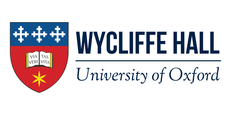Making sports governance fit for the 21st century
Visiting Scholar Dr Jan Exner shares his pioneering, action-oriented research agenda
Dr Jan Exner champions one of those enviable career niches that instead of forcing a choice (Academic, Attorney or Athlete?) involves a unique blend of three passions simultaneously.
What brought him as an Academic Visitor to Wycliffe Hall and Oxford’s Law Faculty in Michaelmas 2024 is an ambitious and actionable research agenda. It’s one that followers of international sports will identify with: How to make sport cleaner, fairer, less corrupt, more transparent.
We caught up with him to find out more:
How do you combine Academia, Law and Sport?
I'm an Assistant Professor of European law at Charles University, Prague, where I gained my PhD and enjoy teaching. I act as an attorney, consulting World Aquatics, the Czech Football Association or the Czech Olympic Committee. I am also an arbitrator of the Court of Arbitration for Sport. In the past, I was a TV Presenter for Eurosport.
Sport is central to my personal life, too—I had an orienteering career while a student at the Sport Grammar School in Jilemnice, and I’m now a recreational swimmer.
How did you spend your time at Wycliffe?
I was living in college, enjoying attending my Fellowship group and integrating with the Christian community—perhaps this would encourage me to explore the overlaps between faith and sport! I was training at the University Swimming Pool and basing myself at the Law Faculty or Somerville College to pursue my research.
What was your research project?
My work overall aims to reform sports law and governance. My Ph.D. topic was the fight against doping in sports, particularly the proportionality of sanctions. Sports governance is the focus that brought me to Oxford—at the invitation of my collaborator, Stephen Weatherill (Professor Emeritus at the University and Senior Research Fellow, Somerville College).
What’s the heart of the problem you want to solve?
Where big money is found in sports, so are big problems. Corruption, gender inequality, violence, ancient governance structures—there is so much wrong! Sports, especially football, are too socially and economically important, so we cannot ignore these issues. Compared to other areas of our lives, sport is one of the least regulated things. But sport cannot NOT be regulated! The question is how to achieve this.
How come the need for regulation hasn’t been tackled before? What are the obstacles?
First, there is a conflict of interest. Sports used to be a grassroots thing. Now, it’s a business. It accounts for 3% of European GDP and 2% of all employment in Europe. Decisions are often made for business purposes, not sports. To move forward, we need to decouple regulatory power from commercial power.
The second obstacle is the lack of political will. Reforming sport hasn’t been a priority in the face of pressing domestic and international issues - it’ll never be a vote winner. Plus, there is strong opposition from sporting bodies that want to safeguard their autonomy and resist what they perceive as ‘political interference’. Yet sport can't reform itself - it can’t be done from the inside.
What will a breakthrough require?
Making reform viable will require a strong coalition between stakeholders. It will take combined leadership from academics, sports governing bodies and politicians - plus community support among fans. I feel sure that reform would be better supported if the gender profile of sports governance were improved. Among many international sporting governing bodies, only a few are led by women.
These challenges are transnational, structural and deeply complex. Are they intractable?
There is certainly a lot of work to be done! There isn’t a perfect solution; it will be a case of the ‘least imperfect’ solution.
Reform ultimately requires an entity to propose it and an entity to enact it. In my view, only the EU has enough ‘critical mass’ internationally. A Europe-wide governance framework would be big enough to leverage the rest of the world (e.g. FIFA) into aligning with it.
You’re quite a pioneer! What do you hope will be the outcome of your research?
Reform requires a sound argument, leading to practical application backed by political clout. Our goal with Stephen is to intensify discussion and argue the case for reform. We also want to deliver a template for how reformed governance could be delivered in the real world.
And what do you hope will be its impact?
If we can, one day, achieve the reform we are working towards, the sports will become cleaner, fairer, safer, more accountable, more transparent, and less cynical. Plus, its ability to fulfil its social function will be enormously enhanced.
So many people would benefit!


Photo credits: Jan Exner
|
FIND OUT MORE Dr Jan Exner is an Assistant Professor in European law at the Charles University Law Faculty in Prague. In 2022, he was awarded Charles University’s 29th annual Bolzano Award in the social sciences category for his PhD Thesis: ‘The Fight against Doping in Sport in Interaction with European Union Law. Proportionality of Ineligibility and Anti-Doping Education’. During Michaelmas Term 2024, Jan Exner was Academic Visitor at Wycliffe Hall, the University of Oxford’s Law Faculty and Somerville College. LinkedIn profile: https://cz.linkedin.com/in/jan-exner-3a07505a Faculty profile: https://www.prf.cuni.cz/detail-cloveka/888951 |




